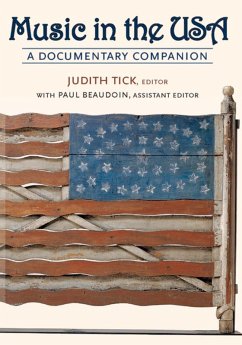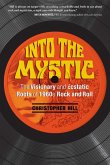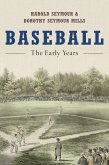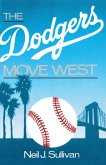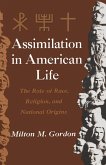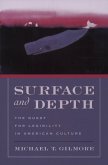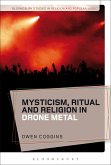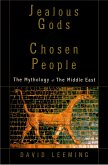Music in the USA (eBook, PDF)
A Documentary Companion
Redaktion: Tick, Judith; Beaudoin, Paul


Alle Infos zum eBook verschenken

Music in the USA (eBook, PDF)
A Documentary Companion
Redaktion: Tick, Judith; Beaudoin, Paul
- Format: PDF
- Merkliste
- Auf die Merkliste
- Bewerten Bewerten
- Teilen
- Produkt teilen
- Produkterinnerung
- Produkterinnerung

Hier können Sie sich einloggen

Bitte loggen Sie sich zunächst in Ihr Kundenkonto ein oder registrieren Sie sich bei bücher.de, um das eBook-Abo tolino select nutzen zu können.
Music in the USA: A Documentary Companion charts a path through American music and musical life using as guides the words of composers, performers, writers and the rest of us ordinary folks who sing, dance, and listen. The anthology of primary sources contains about 160 selections from 1540 to 2000. Sometimes the sources are classics in the literature around American music, for example, the Preface to the Bay Psalm Book, excerpts from Slave Songs of the United States, and Charles Ives extolling Emerson. But many other selections offer uncommon sources, including a satirical story about a…mehr
- Geräte: PC
- mit Kopierschutz
- eBook Hilfe
- Größe: 9.64MB
![Into the Mystic (eBook, ePUB) Into the Mystic (eBook, ePUB)]() Christopher HillInto the Mystic (eBook, ePUB)9,88 €
Christopher HillInto the Mystic (eBook, ePUB)9,88 €![Baseball (eBook, PDF) Baseball (eBook, PDF)]() Harold SeymourBaseball (eBook, PDF)13,95 €
Harold SeymourBaseball (eBook, PDF)13,95 €![The Dodgers Move West (eBook, PDF) The Dodgers Move West (eBook, PDF)]() Neil SullivanThe Dodgers Move West (eBook, PDF)30,95 €
Neil SullivanThe Dodgers Move West (eBook, PDF)30,95 €![Assimilation in American Life (eBook, PDF) Assimilation in American Life (eBook, PDF)]() Milton M. GordonAssimilation in American Life (eBook, PDF)36,95 €
Milton M. GordonAssimilation in American Life (eBook, PDF)36,95 €![Surface and Depth (eBook, PDF) Surface and Depth (eBook, PDF)]() Michael T. GilmoreSurface and Depth (eBook, PDF)24,95 €
Michael T. GilmoreSurface and Depth (eBook, PDF)24,95 €![Mysticism, Ritual and Religion in Drone Metal (eBook, PDF) Mysticism, Ritual and Religion in Drone Metal (eBook, PDF)]() Owen CogginsMysticism, Ritual and Religion in Drone Metal (eBook, PDF)30,95 €
Owen CogginsMysticism, Ritual and Religion in Drone Metal (eBook, PDF)30,95 €![Jealous Gods and Chosen People (eBook, PDF) Jealous Gods and Chosen People (eBook, PDF)]() David LeemingJealous Gods and Chosen People (eBook, PDF)9,95 €
David LeemingJealous Gods and Chosen People (eBook, PDF)9,95 €-
-
-
Dieser Download kann aus rechtlichen Gründen nur mit Rechnungsadresse in A, B, BG, CY, CZ, D, DK, EW, E, FIN, F, GR, HR, H, IRL, I, LT, L, LR, M, NL, PL, P, R, S, SLO, SK ausgeliefert werden.
- Produktdetails
- Verlag: OUP eBook
- Erscheinungstermin: 26. September 2008
- Englisch
- ISBN-13: 9780198032038
- Artikelnr.: 38151275
- Verlag: OUP eBook
- Erscheinungstermin: 26. September 2008
- Englisch
- ISBN-13: 9780198032038
- Artikelnr.: 38151275
- Herstellerkennzeichnung Die Herstellerinformationen sind derzeit nicht verfügbar.
* Introduction
* Acknowledgements
* Table of Contents
* List of Illustrations
* Figures and Graphics
* 1540-1770
* 1: Early Encounters between Indigenous Peoples and European
Explorers, 1540-1642 (Castañeda, Drake, de Meras, Smith, Wood)
* 2: From the Preface to the Bay Psalm Book (1640)
* 3: Four Translations of Psalm 100 (Tehilim, Bay Psalm Book, 1640 and
1698, Watts)
* 4: From the Diaries of Samuel Sewall
* 5: The Ministers Rally for Musical Literacy, 1720-21 (Mather, Walter,
Symmes)
* 6: Benjamin Franklin Advises His Brother on How to Write a Ballad and
How Not to Write like Handel (ca. 1764)
* 7: Advertisements and Notices from Colonial Newspapers, 1716-1774
* 8: Social Music for the Elite in Colonial Williamsburg in the
1750s/1770-1830
* 9: "Christopher Crotchet, Singing Master from Quavertown"
* 10: Singing the Revolution (Adams, Dickinson, Greeley)
* 11: Elisha Bostwick Hears a Scots Prisoner Sing "Gypsie Laddie" in
1777
* 12: A Sidebar into Ballad Scholarship ca.1880-1970: The Wanderings of
"The Gypsy Laddie" (Child, Sharp, Coffin, Bronson)
* 13: William Billings and the New Psalmody, 1770-1794 (Billings,
Gould)
* 14: Daniel Read on Pirating and "Scientific Music," ca. 1790-1830
* 15: Padre Narciso Durán Describes Musical Training at the Mission San
Jose, 1813-1815
* 16: Moravian Musical Life at Bethlehem in the 1800s (Henry, Till,
Bowne)
* 17: Reverend Burkitt Brings Camp Meeting Hymns from Kentucky to North
Carolina in 1803
* 18: John Fanning Watson and The Errors in Methodist Worship (1819)
* 19: Reverend James B. Finley and Mononcue Sing "Come Thou Fount of
Every Blessing" in 1823
* 20: Turn-of-the Century Theater Songs from Reinagle, Rowson, and
Carr: "America, Commerce, and Freedom" and "The Little Sailor
Boy"/1830-1870
* 21: Thomas D. Rice Acts Out "Jim Crow" and "Cuff," in the 1830s
* 22: William M. Whitlock, Banjo Player for the Virginia Minstrels in
the 1850s
* 23: Edwin P. Christy, Stephen Foster, and "Ethiopian Minstrelsy"
* 24: Stephen Foster's Legacy, ca. 1845-1960 (Foster, Gordon, Robb,
Simpson, Willis, Galli-Curci, Kuller and Webster, Charles)
* 25: The Fasola Folk, The Southern Harmony and The Sacred Harp, ca.
1830-1860 (Walker, White, and King )
* 26: A Sidebar into the Discovery of Shape-Note Music by a National
Audience (Jackson, the 1991 Edition)
* 27: The Boston Public Schools Set a National Precedent in Music
Education in 1837
* 28: Music Education for American Girls in the 1850s
* 29: Lorenzo Da Ponte Recruits an Italian Opera Company for New York
(1831)
* 30: Early Expressions of Cultural Nationalism in the 1850s (Hopkins,
Fry, Putnam's Monthly)/31. John S. Dwight Remembers How He and His
Circle "Were But Babes in Music"
* 32: George Templeton Strong Hears the American Premiere of
Beethoven's Fifth in 1841
* 33: German Americans Adapting and Contributing to Musical Life in the
Mid 1800s
* 34: Emil Klauprecht's German-American novel, Cincinnati, oder die
Geheimnisse des Westens, 1854
* 35: P. T. Barnum and the Jenny Lind Fever in 1850
* 36: Miska Hauser, Hungarian Violinist, Pans For Musical Gold in 1853
* 37: From the Journals of Louis Moreau Gottschalk
* 38: The 'Four-Part Blend' of the Hutchinson Family
* 39: Walt Whitman's Conversion to Opera in the 1850s
* 40: Clara Kellogg and the Memoirs of an American Prima Donna in the
1860s and '70s
* 41: Frederick Douglass from My Bondage and My Freedom, 1855
* 42: Harriet Beecher Stowe and Two Scenes from Uncle Tom's Cabin, 1852
* 43: From Slave Songs of the United States, 1867
* 44: A Sidebar into Memory: Slave Narratives from the Federal Writers'
Project, 1936-1938
* 45: George F. Root Recalls How He Wrote a Classic Union Song
* 46: A Confederate Girl's Diary during the Civil War
* 47: Soldier-Musicians from the North and the South Recall Duties on
the Front
* 48: Patrick S. Gilmore and the Golden Age of Bands (Newspaper review,
Herbert)
* 49: Ella Sheppard Moore, a Fisk Jubilee Singer in the 1870s
* 50: Theodore Thomas and His Musical Manifest Destiny (Rose Fay
Thomas, Theodore Thomas)/1880-1920
* 51: John Philip Sousa -Excerpts from his Autobiography
* 52: Why is a Good March like a Marble Statue? (Pryor, Fennell)
* 53: Willa Cather Mourns the Passing of the Small-Town Opera House
* 54: Henry Lee Higginson and the Founding of the Boston Symphony
Orchestra in 1881
* 55: American Classical Music Goes to the Paris World's Fair, 1889
* 56: George Chadwick's Ideals for Composing Classical Concert Music in
the 1890s
* 57: Late 19th-Century Cultural Nationalism: The Paradigm of Dvorák
(Creelman, Paine, Burleigh)
* 58: Henry Krehbiel Explains a Critic's Craft and a Listener's Duty in
1896
* 59: Amy Fay Tackles the "Woman Question" in 1900
* 60: Amy Beach, Composer, on "Why I Chose My Profession" (1914)
* 61: Edward MacDowell, Poet-Musician, Remembered (Currier, Gilman)
* 62: Paul Rosenfeld's Manifesto for American Composers, 1916
* 63: From the Writings of Charles Ives/64, Frederic Louis Ritter Looks
for "the People's Song" (1884)
* 65: Emma Bell Miles on "Some Real American Music" (1905)
* 66: Frances Densmore and the Documentation of American Indian Songs
and Poetry
* 67: A Sidebar into National Cultural Policy: The Federal Cylinder
Project (1979)
* 68: Charles K. Harris on Writing for Tin Pan Alley
* 69: Scott Joplin, Ragtime Visionary (Scott Joplin, Lottie Joplin)
* 70: A Sidebar into the Ragtime Revival of the 1970s: William Bolcom
reviews The Collected Works of Scott Joplin
* 71: James Reese Europe Credits "Men of His Blood with Introducing
Modern Dances" in the 1910s
* 72: Irving Berlin on "Love-Interest" As a Commodity in Popular Songs
(1915)
* 73: Ferdinand "Jelly Roll" Morton Describes New Orleans and Its Jazz
Scene, 1920-1950
* 74: Bessie Smith, Artist and Blues Singer (Press notice, Bailey,
Schuller)
* 75: Thomas Andrew Dorsey "Brings the People Up" and Carries Himself
Along
* 76: Louis Armstrong in His Own Words
* 77: Gilbert Seldes Waves the Flag of Pop
* 78: Al Jolson and The Jazz Singer
* 79: Carl Stalling: Master of Cartoon Music: An Interview
* 80: A Sidebar into Postmodernism: John Zorn Turns Carl Stalling into
a Prophet
* 81: Alec Wilder Writes Lovingly about Jerome Kern
* 82: George Gershwin Surveys "Fifty Years of American Music"
* 83: William Grant Still, Pioneering African American Composer (Still,
Locke, Still)
* 84: The Inimitable Henry Cowell as described by the Irrepressible
Nicolas Slonimsky
* 85: Ruth Crawford on "Dissonant Music"
* 86: "River Sirens, Lion Roars, All Music to Varèse"
* 87: Leopold Stokowski and "Debatable Music"
* 88: Henry Leland Clark on the Composer's Collective
* 89: Marc Blitzstein In and Out of the Treetops of The Cradle Will
Rock
* 90: Samuel Barber and the Controversy around the Premiere of Adagio
for Strings (Downes, Pettis, Menotti, Harris)
* 92: Arthur Berger Divides Aaron Copland into Two Styles
* 93: Aaron Copland on the "The Personality of Stravinsky"
* 94: Roger Sessions Describes the American Period of Arnold Schoenberg
(Sessions, Schoenberg, Sessions)
* 95: Uncle Dave Macon, Banjo Trickster at the Grand Ole Opry
* 96: The Bristol Sessions and Country Music
* 97: A Sidebar into the Folk Revival: Harry Smith's Canon of
"Old-Time" Recordings
* 98: Zora Neale Hurston on "Spirituals and Neo-Spirituals"
* 99: Emma Dusenbury, Source Singer, Describes her Hard Times (1941)
* 100: John and Alan Lomax Propose a "Canon for American Folk Song"
(1947)
* 101: Woody Guthrie Praises the "Spunkfire" Attitude of a Folk Song
(1948)
* 102: Fred Astaire Dances like a Twentieth-Century American (Williams)
* 103: The Innovations of Oklahoma! (de Mille, Engel)
* 104: Duke Ellington on Swing as a Way of Life
* 105: Malcolm X Recalls the Years of Swing
* 106: The Many Faces of Billie Holiday (Holiday, Wilson, Bennett)
* 107: Ralph Ellison and the Birth of Bebop at Minton's, 1950-1975
* 108: Ella Fitzgerald On Stage (Peterson)
* 109: Leonard Bernstein Finds His Way to the American Musical
* 110: Stephen Sondheim on Writing "Theater Lyrics"
* 111: Muddy Waters Explains "Why It Doesn't Pay to Run from Trouble"
* 112: Elvis Presley in the Eye of Musical Twister (newspaper reviews,
Gould, Lewis)
* 113: Chuck Berry in His Own Words
* 114: Greil Marcus and the New Rock Criticism in the 1970s
* 115: The Five String Banjo: Hints from the 1960s Speed-Master, Earl
Scruggs
* 116: Pete Seeger, a TCUSAPSS, "Sings Out!"
* 117: Bob Dylan Turns Liner Notes into Poetry
* 118: Janis Joplin Grabs Pieces of Our Hearts (Joplin, Graham)
* 119: "Handcrafting the Grooves" in the Studio: Aretha Franklin at
Muscle Shoals (Wexler)
* 120: Jimi Hendrix, Virtuoso of Electricity (Hendrix, Bloomfield)
* 121: Amiri Baraka Theorizes a Black Nationalist Aesthetic
* 122: Charles Reich on The Music of "Consciousness III"
* 123: McCoy Tyner on "The Jubilant Experience of John Coltrane's
Classic Quartet
* 124: Miles Davis - Excerpts from his Autobiography
* 125: A Vietnam Vet Remembers Rocking and Rolling in the Mud of War
(Rodriguez, Beaudoin and Rodriguez)
* 126: George Crumb and Black Angels--"A Quartet in Time of War"
* 127: Milton Babbitt on Electronic Music (Brody and Miller, Babbitt)
* 128: Edward T. Cone Satirizes Music Theory's New Vocabulary in the
1960s
* 129: Mario Davidovsky, An Introduction (Chasalow)
* 130: Elliot Carter on the 'Different Time Worlds' in String Quartets
No. 1 and 2
* 131: John Cage, Words and Music For Changes (Cage, Anderson)
* 132: Harold Schonberg on "Art and Bunk, Matter and Anti Matter"
* 133: Pauline Oliveros, Composer and Teacher
* 134: Steve Reich on "Music as a Gradual Process," 1975-2000
* 135: Star Wars meets Wagner (Williams, Tomlinson)
* 136: Tom Johnson--What is Minimalism Really About?
* 137: Morton Feldman and His West German Fan Base (Feldman, Post)
* 138: Philip Glass and the Roots of Reform Opera
* 139: Laurie Anderson, Performance Artist (Anderson, Gordon)
* 140: Meredith Monk and the Revelation of Voice
* 141: Recapturing the Soul of the American Orchestra (Duffy, Tower)
* 142: Two Economists Measure the Impact of Blind Auditions between
1960 and 2000
* 143: John Harbison on Modes of Composing
* 144: Wynton Marsalis on Learning from the Past for the Sake of the
Present
* 145: John Adams, an American Master
* 146: The Incorporation of the American Folklife Center
* 147: Daniel Boorstin's Welcoming Remarks at the Conference on Ethnic
Recordings in America (1977)
* 148: Willie Colon on "Conscious Salsa"
* 149: The Accordion Travels Through "Roots Music" (Savoy)
* 150: Santiago Jiménez, a Patriarch of Conjunto
* 151: Gloria Anzaldúa on "Vistas" y corridos: My Native Tongue
* 152: Contemporary Native American Music and the Pine Ridge
Reservation (Porcupine Singers, Frazier)
* 153: MTV and the Music Video (MoMA Exhibition of 1985, Hoberman)
* 154: Turning Points in the Career of Michael Jackson (Jackson, Jones)
* 155: Sally Banes Explains Why Breaking is Hard to Do
* 156: Two Members of Public Enemy Discuss Sampling and Copyright Law
* 157: DJ Q-bert, Master of Turntable Music (Chin)
* 158: A Press Release from the Country Music Association (1997)
* 159: Ephemeral Music: Napster's Congressional Testimony (2000)
* Introduction
* Acknowledgements
* Table of Contents
* List of Illustrations
* Figures and Graphics
* 1540-1770
* 1: Early Encounters between Indigenous Peoples and European
Explorers, 1540-1642 (Castañeda, Drake, de Meras, Smith, Wood)
* 2: From the Preface to the Bay Psalm Book (1640)
* 3: Four Translations of Psalm 100 (Tehilim, Bay Psalm Book, 1640 and
1698, Watts)
* 4: From the Diaries of Samuel Sewall
* 5: The Ministers Rally for Musical Literacy, 1720-21 (Mather, Walter,
Symmes)
* 6: Benjamin Franklin Advises His Brother on How to Write a Ballad and
How Not to Write like Handel (ca. 1764)
* 7: Advertisements and Notices from Colonial Newspapers, 1716-1774
* 8: Social Music for the Elite in Colonial Williamsburg in the
1750s/1770-1830
* 9: "Christopher Crotchet, Singing Master from Quavertown"
* 10: Singing the Revolution (Adams, Dickinson, Greeley)
* 11: Elisha Bostwick Hears a Scots Prisoner Sing "Gypsie Laddie" in
1777
* 12: A Sidebar into Ballad Scholarship ca.1880-1970: The Wanderings of
"The Gypsy Laddie" (Child, Sharp, Coffin, Bronson)
* 13: William Billings and the New Psalmody, 1770-1794 (Billings,
Gould)
* 14: Daniel Read on Pirating and "Scientific Music," ca. 1790-1830
* 15: Padre Narciso Durán Describes Musical Training at the Mission San
Jose, 1813-1815
* 16: Moravian Musical Life at Bethlehem in the 1800s (Henry, Till,
Bowne)
* 17: Reverend Burkitt Brings Camp Meeting Hymns from Kentucky to North
Carolina in 1803
* 18: John Fanning Watson and The Errors in Methodist Worship (1819)
* 19: Reverend James B. Finley and Mononcue Sing "Come Thou Fount of
Every Blessing" in 1823
* 20: Turn-of-the Century Theater Songs from Reinagle, Rowson, and
Carr: "America, Commerce, and Freedom" and "The Little Sailor
Boy"/1830-1870
* 21: Thomas D. Rice Acts Out "Jim Crow" and "Cuff," in the 1830s
* 22: William M. Whitlock, Banjo Player for the Virginia Minstrels in
the 1850s
* 23: Edwin P. Christy, Stephen Foster, and "Ethiopian Minstrelsy"
* 24: Stephen Foster's Legacy, ca. 1845-1960 (Foster, Gordon, Robb,
Simpson, Willis, Galli-Curci, Kuller and Webster, Charles)
* 25: The Fasola Folk, The Southern Harmony and The Sacred Harp, ca.
1830-1860 (Walker, White, and King )
* 26: A Sidebar into the Discovery of Shape-Note Music by a National
Audience (Jackson, the 1991 Edition)
* 27: The Boston Public Schools Set a National Precedent in Music
Education in 1837
* 28: Music Education for American Girls in the 1850s
* 29: Lorenzo Da Ponte Recruits an Italian Opera Company for New York
(1831)
* 30: Early Expressions of Cultural Nationalism in the 1850s (Hopkins,
Fry, Putnam's Monthly)/31. John S. Dwight Remembers How He and His
Circle "Were But Babes in Music"
* 32: George Templeton Strong Hears the American Premiere of
Beethoven's Fifth in 1841
* 33: German Americans Adapting and Contributing to Musical Life in the
Mid 1800s
* 34: Emil Klauprecht's German-American novel, Cincinnati, oder die
Geheimnisse des Westens, 1854
* 35: P. T. Barnum and the Jenny Lind Fever in 1850
* 36: Miska Hauser, Hungarian Violinist, Pans For Musical Gold in 1853
* 37: From the Journals of Louis Moreau Gottschalk
* 38: The 'Four-Part Blend' of the Hutchinson Family
* 39: Walt Whitman's Conversion to Opera in the 1850s
* 40: Clara Kellogg and the Memoirs of an American Prima Donna in the
1860s and '70s
* 41: Frederick Douglass from My Bondage and My Freedom, 1855
* 42: Harriet Beecher Stowe and Two Scenes from Uncle Tom's Cabin, 1852
* 43: From Slave Songs of the United States, 1867
* 44: A Sidebar into Memory: Slave Narratives from the Federal Writers'
Project, 1936-1938
* 45: George F. Root Recalls How He Wrote a Classic Union Song
* 46: A Confederate Girl's Diary during the Civil War
* 47: Soldier-Musicians from the North and the South Recall Duties on
the Front
* 48: Patrick S. Gilmore and the Golden Age of Bands (Newspaper review,
Herbert)
* 49: Ella Sheppard Moore, a Fisk Jubilee Singer in the 1870s
* 50: Theodore Thomas and His Musical Manifest Destiny (Rose Fay
Thomas, Theodore Thomas)/1880-1920
* 51: John Philip Sousa -Excerpts from his Autobiography
* 52: Why is a Good March like a Marble Statue? (Pryor, Fennell)
* 53: Willa Cather Mourns the Passing of the Small-Town Opera House
* 54: Henry Lee Higginson and the Founding of the Boston Symphony
Orchestra in 1881
* 55: American Classical Music Goes to the Paris World's Fair, 1889
* 56: George Chadwick's Ideals for Composing Classical Concert Music in
the 1890s
* 57: Late 19th-Century Cultural Nationalism: The Paradigm of Dvorák
(Creelman, Paine, Burleigh)
* 58: Henry Krehbiel Explains a Critic's Craft and a Listener's Duty in
1896
* 59: Amy Fay Tackles the "Woman Question" in 1900
* 60: Amy Beach, Composer, on "Why I Chose My Profession" (1914)
* 61: Edward MacDowell, Poet-Musician, Remembered (Currier, Gilman)
* 62: Paul Rosenfeld's Manifesto for American Composers, 1916
* 63: From the Writings of Charles Ives/64, Frederic Louis Ritter Looks
for "the People's Song" (1884)
* 65: Emma Bell Miles on "Some Real American Music" (1905)
* 66: Frances Densmore and the Documentation of American Indian Songs
and Poetry
* 67: A Sidebar into National Cultural Policy: The Federal Cylinder
Project (1979)
* 68: Charles K. Harris on Writing for Tin Pan Alley
* 69: Scott Joplin, Ragtime Visionary (Scott Joplin, Lottie Joplin)
* 70: A Sidebar into the Ragtime Revival of the 1970s: William Bolcom
reviews The Collected Works of Scott Joplin
* 71: James Reese Europe Credits "Men of His Blood with Introducing
Modern Dances" in the 1910s
* 72: Irving Berlin on "Love-Interest" As a Commodity in Popular Songs
(1915)
* 73: Ferdinand "Jelly Roll" Morton Describes New Orleans and Its Jazz
Scene, 1920-1950
* 74: Bessie Smith, Artist and Blues Singer (Press notice, Bailey,
Schuller)
* 75: Thomas Andrew Dorsey "Brings the People Up" and Carries Himself
Along
* 76: Louis Armstrong in His Own Words
* 77: Gilbert Seldes Waves the Flag of Pop
* 78: Al Jolson and The Jazz Singer
* 79: Carl Stalling: Master of Cartoon Music: An Interview
* 80: A Sidebar into Postmodernism: John Zorn Turns Carl Stalling into
a Prophet
* 81: Alec Wilder Writes Lovingly about Jerome Kern
* 82: George Gershwin Surveys "Fifty Years of American Music"
* 83: William Grant Still, Pioneering African American Composer (Still,
Locke, Still)
* 84: The Inimitable Henry Cowell as described by the Irrepressible
Nicolas Slonimsky
* 85: Ruth Crawford on "Dissonant Music"
* 86: "River Sirens, Lion Roars, All Music to Varèse"
* 87: Leopold Stokowski and "Debatable Music"
* 88: Henry Leland Clark on the Composer's Collective
* 89: Marc Blitzstein In and Out of the Treetops of The Cradle Will
Rock
* 90: Samuel Barber and the Controversy around the Premiere of Adagio
for Strings (Downes, Pettis, Menotti, Harris)
* 92: Arthur Berger Divides Aaron Copland into Two Styles
* 93: Aaron Copland on the "The Personality of Stravinsky"
* 94: Roger Sessions Describes the American Period of Arnold Schoenberg
(Sessions, Schoenberg, Sessions)
* 95: Uncle Dave Macon, Banjo Trickster at the Grand Ole Opry
* 96: The Bristol Sessions and Country Music
* 97: A Sidebar into the Folk Revival: Harry Smith's Canon of
"Old-Time" Recordings
* 98: Zora Neale Hurston on "Spirituals and Neo-Spirituals"
* 99: Emma Dusenbury, Source Singer, Describes her Hard Times (1941)
* 100: John and Alan Lomax Propose a "Canon for American Folk Song"
(1947)
* 101: Woody Guthrie Praises the "Spunkfire" Attitude of a Folk Song
(1948)
* 102: Fred Astaire Dances like a Twentieth-Century American (Williams)
* 103: The Innovations of Oklahoma! (de Mille, Engel)
* 104: Duke Ellington on Swing as a Way of Life
* 105: Malcolm X Recalls the Years of Swing
* 106: The Many Faces of Billie Holiday (Holiday, Wilson, Bennett)
* 107: Ralph Ellison and the Birth of Bebop at Minton's, 1950-1975
* 108: Ella Fitzgerald On Stage (Peterson)
* 109: Leonard Bernstein Finds His Way to the American Musical
* 110: Stephen Sondheim on Writing "Theater Lyrics"
* 111: Muddy Waters Explains "Why It Doesn't Pay to Run from Trouble"
* 112: Elvis Presley in the Eye of Musical Twister (newspaper reviews,
Gould, Lewis)
* 113: Chuck Berry in His Own Words
* 114: Greil Marcus and the New Rock Criticism in the 1970s
* 115: The Five String Banjo: Hints from the 1960s Speed-Master, Earl
Scruggs
* 116: Pete Seeger, a TCUSAPSS, "Sings Out!"
* 117: Bob Dylan Turns Liner Notes into Poetry
* 118: Janis Joplin Grabs Pieces of Our Hearts (Joplin, Graham)
* 119: "Handcrafting the Grooves" in the Studio: Aretha Franklin at
Muscle Shoals (Wexler)
* 120: Jimi Hendrix, Virtuoso of Electricity (Hendrix, Bloomfield)
* 121: Amiri Baraka Theorizes a Black Nationalist Aesthetic
* 122: Charles Reich on The Music of "Consciousness III"
* 123: McCoy Tyner on "The Jubilant Experience of John Coltrane's
Classic Quartet
* 124: Miles Davis - Excerpts from his Autobiography
* 125: A Vietnam Vet Remembers Rocking and Rolling in the Mud of War
(Rodriguez, Beaudoin and Rodriguez)
* 126: George Crumb and Black Angels--"A Quartet in Time of War"
* 127: Milton Babbitt on Electronic Music (Brody and Miller, Babbitt)
* 128: Edward T. Cone Satirizes Music Theory's New Vocabulary in the
1960s
* 129: Mario Davidovsky, An Introduction (Chasalow)
* 130: Elliot Carter on the 'Different Time Worlds' in String Quartets
No. 1 and 2
* 131: John Cage, Words and Music For Changes (Cage, Anderson)
* 132: Harold Schonberg on "Art and Bunk, Matter and Anti Matter"
* 133: Pauline Oliveros, Composer and Teacher
* 134: Steve Reich on "Music as a Gradual Process," 1975-2000
* 135: Star Wars meets Wagner (Williams, Tomlinson)
* 136: Tom Johnson--What is Minimalism Really About?
* 137: Morton Feldman and His West German Fan Base (Feldman, Post)
* 138: Philip Glass and the Roots of Reform Opera
* 139: Laurie Anderson, Performance Artist (Anderson, Gordon)
* 140: Meredith Monk and the Revelation of Voice
* 141: Recapturing the Soul of the American Orchestra (Duffy, Tower)
* 142: Two Economists Measure the Impact of Blind Auditions between
1960 and 2000
* 143: John Harbison on Modes of Composing
* 144: Wynton Marsalis on Learning from the Past for the Sake of the
Present
* 145: John Adams, an American Master
* 146: The Incorporation of the American Folklife Center
* 147: Daniel Boorstin's Welcoming Remarks at the Conference on Ethnic
Recordings in America (1977)
* 148: Willie Colon on "Conscious Salsa"
* 149: The Accordion Travels Through "Roots Music" (Savoy)
* 150: Santiago Jiménez, a Patriarch of Conjunto
* 151: Gloria Anzaldúa on "Vistas" y corridos: My Native Tongue
* 152: Contemporary Native American Music and the Pine Ridge
Reservation (Porcupine Singers, Frazier)
* 153: MTV and the Music Video (MoMA Exhibition of 1985, Hoberman)
* 154: Turning Points in the Career of Michael Jackson (Jackson, Jones)
* 155: Sally Banes Explains Why Breaking is Hard to Do
* 156: Two Members of Public Enemy Discuss Sampling and Copyright Law
* 157: DJ Q-bert, Master of Turntable Music (Chin)
* 158: A Press Release from the Country Music Association (1997)
* 159: Ephemeral Music: Napster's Congressional Testimony (2000)
